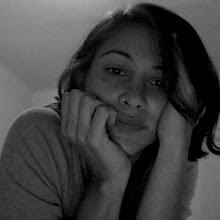Internationally, (and politically), reception was at best luke-warm, and many countries' initial reaction was to condemn Hizbullah's act (kidnapping the soldiers and firing missiles into Israel), and asserted Israel's right to self-defense (in its own War against Terror). Many Lebanese (me included) were at their wit's end, as to how the most international media (and some local ones) had decided that the conflict was categorized as a war between Israel and Hizbullah, as opposed to Israel attacking Lebanon. The whole country was under attack, and for a long while little to no effort was made to get a ceasefire. The news focused on Hizbullah, yet the whole country was under siege, with the airport closed (bombed on the first night), and Israeli ships patrolling territorial waters, forbidding ships from leaving or entering the country.
 During that time, I worked as a volunteer (at Al Huda foundation) distributing food and hygiene products to the displaced who had not found room in public schools (the latter were cared for by government bodies). I also blogged incessantly, on friends' blogs, and on many websites I was a member of. Although most of the networks included Lebanese and Arabs abroad, a few were totally unrelated, for example a prominent British writer's fan website. I provided a bi-weekly diary of sorts, describing the news, my work, offering pictures, details, analysis, translations, etc...
During that time, I worked as a volunteer (at Al Huda foundation) distributing food and hygiene products to the displaced who had not found room in public schools (the latter were cared for by government bodies). I also blogged incessantly, on friends' blogs, and on many websites I was a member of. Although most of the networks included Lebanese and Arabs abroad, a few were totally unrelated, for example a prominent British writer's fan website. I provided a bi-weekly diary of sorts, describing the news, my work, offering pictures, details, analysis, translations, etc...When I posted the NGO's website for donations, many (virtual) friends donated (real) money. One of my blog contributions made it in to a book, [A Lost Summer: Postcards from Lebanon, Saqi Books, September 2008] (Sample pages shown below). A concert in the UK (left) took place where Lebanese and Arab artists performed, and read from the blogs collected in the book, the money going to Al Huda and Muwatinun and other NGOs. Also a few friends with a camera, and a studio not far from the main targeted area of Dahieh, recorded from Beirut... to those who love us. This video was sent through a number of channels, and networks and even ended up projected in Washington Square Park in NY, creating more public awareness. http://electronicintifada.net/v2/article5524.shtml
Can I safely say that I believe in the power of monitorial citizenship? Micheal in another post [online class discussion] argues the nuance between power and information. Perhaps information (knowledge) is power. However, how powerful IS the dissemination of knowledge? When people know, can they change anything? I believe that my friends' contribution and mine were necessary, were an expression of our right and duty towards our fellow citizens, who could not be heard, who did not have access. Did we change the outcome of the war? I doubt it. It certainly helped us deal with some of its consequences, and its mis-perceptions.
I am not by nature a pessimist, but I am a realist. I believe monitorial citizenship is necessary. But the fact remains that while monitorial citizenship has allowed us to glimpse what is happening in Myanmar (eg) it has yet to change the situation of the Burmese people. When ENOUGH people know perhaps... But know what? I can think of a few issues I have with the amount of information offered on the web. There is an equal amount of "misinformation". The utopic dream the internet as a truely democratic tool, will it always bring on "better" things? Which versions of "truth" prevail? What informational standards are applied? How do you educate people to distinguish between a credible website and a non-credible one? What is a credible website, what is not?
The advantage of wikis is that they can always be edited, expanded, fine-tuned. The problem with wikis is that they can always be edited, censored.




No comments:
Post a Comment